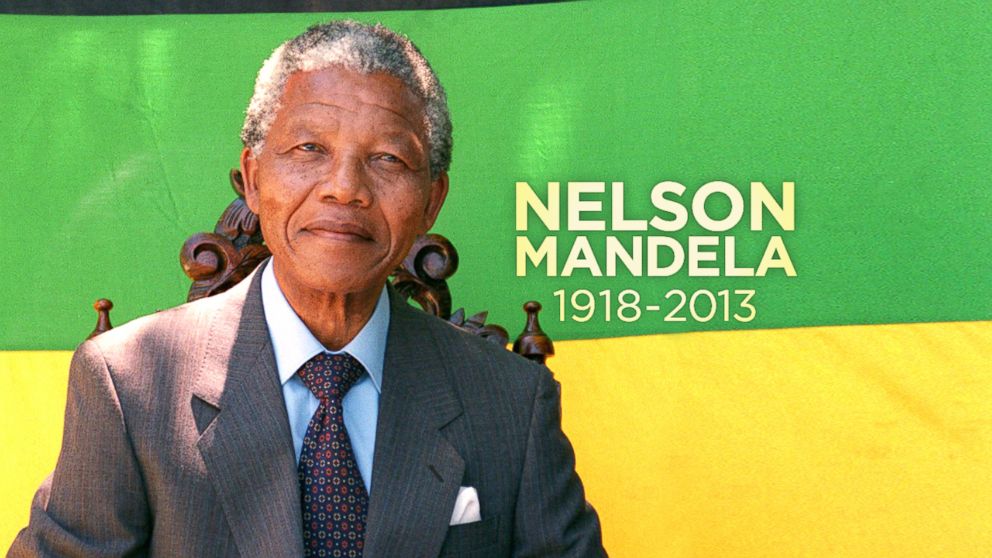 "Death is something inevitable. When a man has done what he considers to
be his duty to his people and his country, he can rest in peace. I
believe I have made that effort and that is, therefore, why I will sleep
for the eternity.” - Nelson Mandela
"Death is something inevitable. When a man has done what he considers to
be his duty to his people and his country, he can rest in peace. I
believe I have made that effort and that is, therefore, why I will sleep
for the eternity.” - Nelson MandelaI was at the Y the morning after Nelson Mandela's passing last week, and the deejays were marveling at the faith, courage, and will that he had to summon to suffer for his people and his country. The deejays paid rightful homage to one of our generation's greatest humans with not a little incredulity in their voices: "What possesses a man to give up his freedom and face decades of imprisonment, not for his own personal gain but for the pursuit of justice for his fellow man?"
It takes your breath away to think of how innately selfish we all are, and yet how much admiration we extend to those who are so selfless. Perhaps this is not surprising: it is because we are often so selfish that we honor those who are better than us in being able to sublimate themselves in exchange for fighting for others. We are reminded, perhaps convicted, that we are not as we ought to be, and that we ought to get out of ourselves more often and get into helping others. (I am mindful that all of this contemplating is taking place during the holiday season, which was once a time for reflection but for many of us has become a time of stress, consumption, and commercialism.)
If this life is all there is, why is it that we are so disgusted at our own selfishness and so captivated by one who lived such a selfless life? If there's no prize at the end for a life well-lived, shouldn't we seek to maximize individual happiness, and shouldn't selfless acts seem an unappealing diversion?
If you don't think this way, you are not as selfish as I am. Or maybe you have reconciled yourself to the fact that living for others is what will allow you to feel good about how you lived your life when you get to the end of your life, as per the quote at the beginning of this post. Or maybe helping others is how you maximize happiness - not just something you to feel at peace or get a reward, but something that is itself an opportunity to feel and be happy.
Christians, and many other religious folks, believe in life after life, and in the relationship between how you live your life now and what that life after life will be like. I cannot speak as well for other faiths, but I know that Christianity centers on a God who demonstrated His love for us in dying for others. And it is a faith that is full of faithful people who lived their lives accordingly to promises that they themselves did not get to see the fulfillment of; they persevered, suffered, and even died based on the assurance that what they persevered, suffered, and died for would eventually come to pass.
And yet, all too often we who identify with this faith are completely self-focused, considering not the many earthly reasons to be selfless, let alone the overriding heavenly ones. If we consider God's promises it is in a self-serving way, and at the first sign of discomfort we turn back in self-preservation. Shame on us for being so. Nelson Mandela was a great man and he deserves our admiration. But our response to his life, and his recent death, should extend beyond acts of admiration. We should also reflect, examine why we live and what we are living for, and then live accordingly.
"All these died in faith, without receiving the promises, but having seen them and having welcomed them from a distance, and having confessed that they were strangers and exiles on the earth. For those who say such things make it clear that they are seeking a country of their own. And indeed if they had been thinking of that country from which they went out, they would have had opportunity to return. But as it is, they desire a better country, that is, a heavenly one. Therefore God is not ashamed to be called their God; for He has prepared a city for them...And all these, having gained approval through their faith, did not receive what was promised, because God had provided something better for us, so that apart from us they would not be made perfect." - Hebrews 11:13-16, 39-40


No comments:
Post a Comment